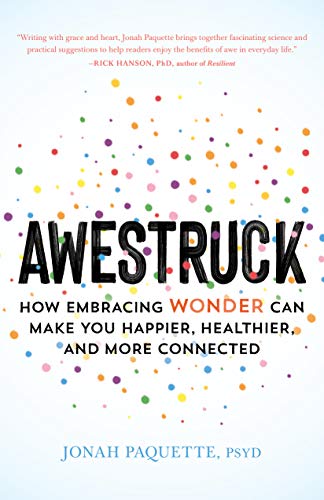Posts Tagged ‘stress-levels’
How Wonder and Awe help us transcend self, regulate stress, and improve well-being
What is awe? We have all experienced it, even if we didn’t know what to call it. Whether we’re overlooking a beautiful view after a challenging hike or watching a new leaf grow on the plant we’ve been nurturing in lockdown, the feeling we get in that moment—amazed, inspired, transported—is what researchers call awe. In his new…
Read MoreWhat will the ‘Peloton for mental health’ look like five years from now? And, who will develop it?
MindLabs raises £1.4M for its new platform, a ‘Peloton for mental health’ (TechCrunch): Ideally, mental wellness should be considered part of a healthy daily routine, like exercise. But even exercise is difficult to turn into a regular habit. Peloton addressed physical fitness by combining smart stationary bikes with live classes and community features to create…
Read MoreUpdate: Should candidates to high office should pass a cognitive/ mental fitness test?
Wow, that was a couple of very insightful discussions, via social media no less. #1. The first one was about whether heads of state and candidates to high office should pass a cognitive/ mental fitness test. Click HERE to read and discuss some of the sharpest comments, such as… “I wonder what brought this up.” “Definitely. We routinely screen…
Read MoreQuick brain teaser to determine your stress levels
____________________ Are you ready for Monday and the new workweek? Here’s a quick test to assess your stress levels. Please read this paragraph carefully before clicking on the link below. The picture below was used in a case study on stress levels at St. Jude’s Hospital.
Read MoreReport finds only 35% of Canadian youth get the physical activity recommended for brain health
___ Getting kids outside and active could help with brain health: Participaction report (The Globe and Mail): “The physical benefits of kids leading an active lifestyle, including better heart health and a decreased risk of developing Type 2 diabetes, are well known. But a growing body of research suggests there are significant mental benefits as well,…
Read MoreTraining Young Brains to Behave
Great article in the New York Times titled Training Young Brains to Behave. A couple of quotes: — “But just as biology shapes behavior, so behavior can accelerate biology. And a small group of educational and cognitive scientists now say that mental exercises of a certain kind can teach children to become more self-possessed at…
Read More




